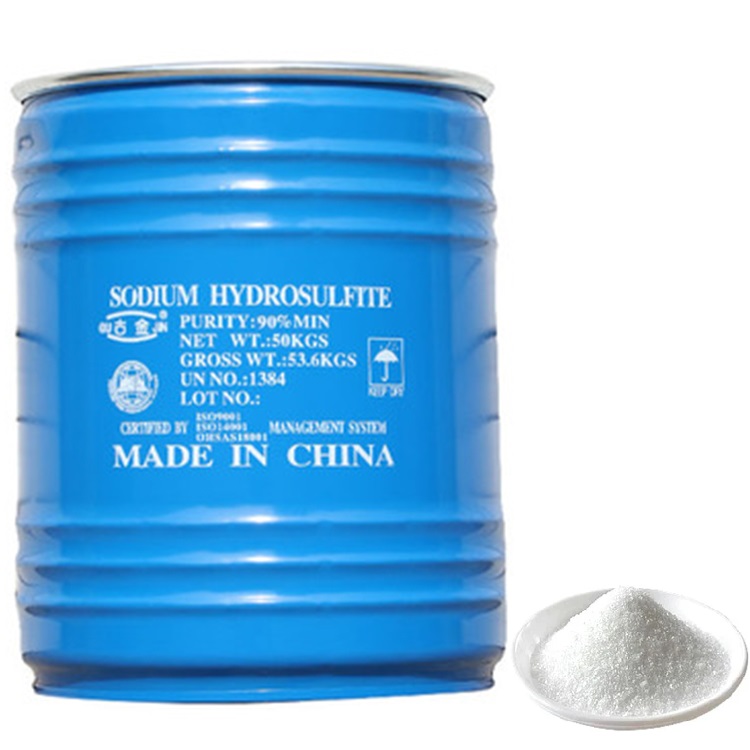Description
Buy Sodium Hydrosulfite 90% (50 kg) from ChemLV at a bargain price in Latvia and the European Union
Intended use Sodium hydrosulfite 90% (50 kg) – Food supplement Е222 | Component for dyeing fabrics and fibers | Water Filtration & Equipment Sterilization | Leather tanning | Stump removal
Applied – Food industry | Textile industry | Pharmaceutical industry | Leather industry | Agriculture
Description Sodium hydrosulfite 90% (50 kg)
Sodium hydrosulfite (Sodium dithionite) is an inorganic compound, an alkali metal salt of sodium and an unstable dithionic acid with the chemical formula Na2S2O4.
Sodium dithionite decomposes when heated, in hot water, with acid in the cold and at room temperature. It is easily oxidized by atmospheric oxygen, restores low-active metals.
Sodium dithionite is explosion-proof.
In appearance, sodium dithionite (sodium hydrosulfite) is a free-flowing white fine-crystalline powder.
Sodium dithionite (sodium hydrosulfite) is recommended to be transported and stored under the following conditions:
Sodium dithionite is transported by all available modes of transport (except air), in covered vehicles in accordance with the rules for the carriage of goods.
It is necessary to store sodium hydrosulfite in closed original packaging, in a cool, dry, well-ventilated area and only on pallets.
Under the conditions of transportation and storage in unopened original packaging, the warranty period of storage of sodium dithionite (sodium hydrosulfite) is 2 years from the date of manufacture.
Sodium dithionite (sodium hydrosulfite) is widely used in industry:
Sodium dithionite is used to make white pigments.
In the textile industry, sodium dithionite is used primarily as a reducing agent for vat dyes, for reducing cleaning in the dyeing of polyester, and for removing direct, active dyes in the dyeing of cotton.
Sodium dithionite is used for water treatment.
Sodium dithionite is used in light, chemical, food, leather and other industries.
Security
Signal word – Danger
Stickers (Pictogram) – GHS02, GHS07


Hazard statements –
H251 – Heats up spontaneously; fire hazard
H302 – Harmful if swallowed
EUH031 – Contact with acids releases poisonous gas
Precautionary statements –
P235 + P410 – Keep cool. Keep out of the sun
P264 – Wash face, hands and all exposed skin thoroughly after handling
P301 + P312 – IF SWALLOWED: Call a POISON CENTER or doctor/physician if feeling unwell
P305 + P351 + P338 – IF IN EYES: Rinse cautiously with water for several minutes. Remove contact lenses, if you use them and if it’s easy to do so. Continue rinsing
UN number – UN 1384
Hazard Class – 4.2
Packing Group – II








